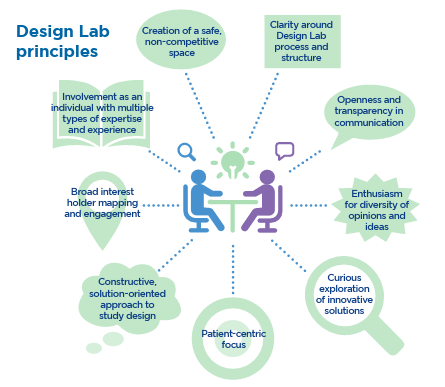Connecting researchers and community members to improve the public’s health is a primary focus at Tufts Clinical and Translational Science Institute (Tufts CTSI), and Aligning Researchers and Communities for Health (ARCH) specializes in fostering those conversations.
In November 2012, the Tufts CTSI ARCH team partnered with Harvard Catalyst (the Harvard Clinical and Translational Science Center), the Dana-Farber Cancer Institute and the Planet MassCONECT Institute for Community Health Program Planning (iCHPP) to host a Health Policy Workshop for community leaders from five Community Health Network Areas (CHNAs) and participants of ARCH’s Building Your Capacity: Advancing Research through Community Engagement Program (BYC) (PDF).
CHNAs are coalitions of agencies in the public, non-profit, and private sectors with local residents working together to build healthier communities through community-based prevention, planning, and health promotion. The Massachusetts Department of Public Health (MDPH) established CHNAs in 1992, and today there are 27 CHNAs representing all 351 cities and towns in Massachusetts.
The idea to offer a Health Policy Workshop grew out of partnerships between iCHPP, ARCH, Harvard Catalyst, the CHNAs, and organizations enrolled in BYC to increase community participation in academic research. One of the goals of the Health Policy Workshop was to help CHNAs and BYC participants bring their research efforts to the next level through a five-step approach to creating and implementing effective community health policy. The event gathered about 65 attendees from each of the partnering organizations, as well as public health experts, clinicians, and scholars.
Lea Susan Ojamaa, Director for the Division of Prevention and Wellness at MDPH, was the keynote speaker. Ojamaa is a leader in the Mass in Motion initiative that encourages Massachusetts residents to improve their health through improved nutrition and increased physical activity.
“We cannot get people to be more active and eat better if we don’t influence the design of our communities,” Ojamaa said. “If we’re going to have healthy people, we have to start upstream with healthy policy that will help create the environments to support their ability to make healthy choices.”
The morning workshop, Planning for Policy Change, challenged participants to develop a tobacco control policy for a fictitious town. By working through a series of steps, workgroups diagnosed the problem, determined whether a recent event brought urgency to the issue, decided the best approach to address the issue, identified key stakeholders, discussed options for data to support their position, and decided the most effective policy approach.
The theme of tobacco cessation continued during a panel discussion about best practices for policy change. Diane Knight, Director of the Northeast Tobacco Free Community Partnership, said “Don’t be afraid to go outside your own area to find best practices. Communities that have already implemented policies are a great place to find out what has already worked well.”
Lisa Lambert, Executive Director of the Parent/Professional Advocacy League (PPAL), stressed the benefit of networking. “Talk to people to find policymakers who will champion your issue,” she said.
Cesar Pungirum, Director of the Merrimack Alcohol & Tobacco Control Collaborative (MATC), added, “If you can, you should also use local data to show the impact of an issue on a particular community. This helps to get buy-in.”
Dr. Christina Roberto, Clinical Psychologist and Epidemiologist at the Harvard School of Public Health, and Dr. Vish Viswanath, Associate Professor at the Harvard School of Public Health, led the afternoon workshop “Creating a Climate for Change.” Using the example of New York City’s restrictions on the sale of large sugary beverages, they spoke about the importance of language in communicating the reasons for policy change.
Dr. Roberto said, “The language you use, the images you display, and the way you present your statistics can have a tremendous impact on how your message is received. Make it as easy as possible for others to join your cause.”
At the end of the day, workshop participants put the five-step community health policy approach into action at a mock community hearing about restricting the sale of sugary beverages. They were challenged to assume the personas of concerned parents, local business owners, community advocates, and beverage consumers and argued for and against the beverage restriction using techniques outlined by Dr. Roberto.
Dr. Clara Savage, Director of Common Pathways (CHNA 8) in Worcester, summarized the spirit of the event by saying, “It is fantastic to have this opportunity. This is the first time we are all coming together to talk about the different types of policy and the process for initiating policy change. We need to continue this conversation – today is just the beginning.”



